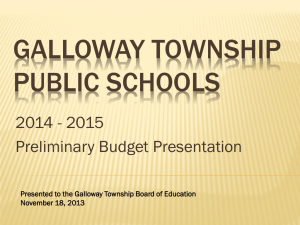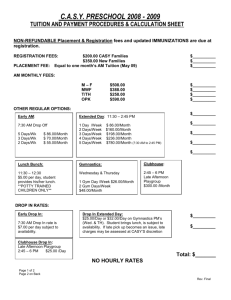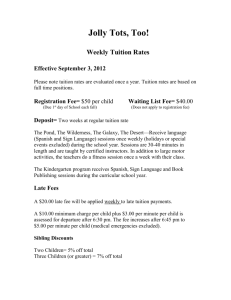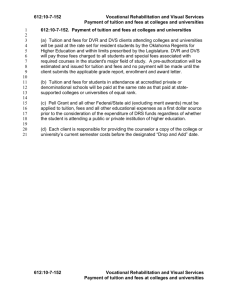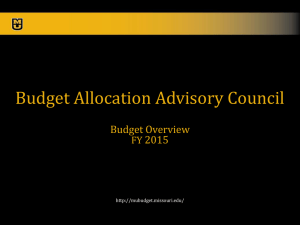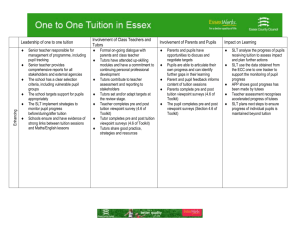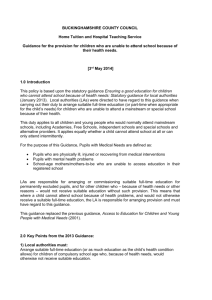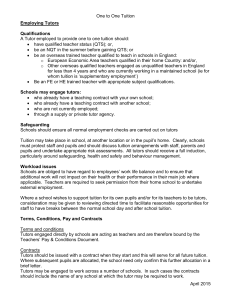What the VSBA Told You - Thomas Jefferson Institute for Public Policy
advertisement
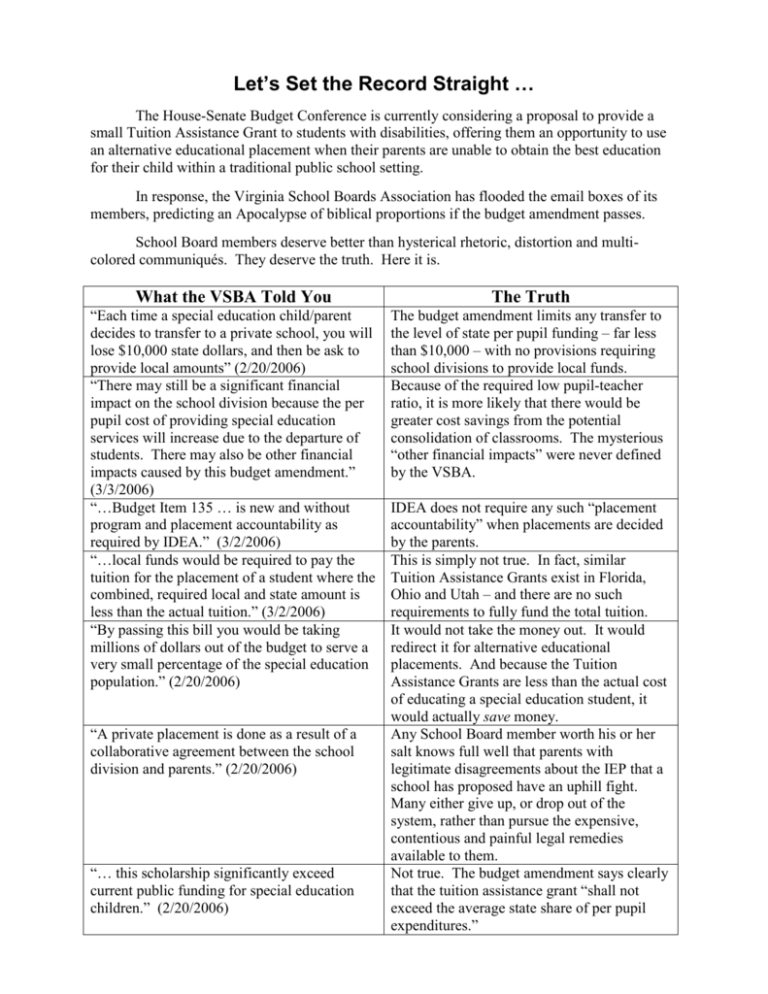
Let’s Set the Record Straight … The House-Senate Budget Conference is currently considering a proposal to provide a small Tuition Assistance Grant to students with disabilities, offering them an opportunity to use an alternative educational placement when their parents are unable to obtain the best education for their child within a traditional public school setting. In response, the Virginia School Boards Association has flooded the email boxes of its members, predicting an Apocalypse of biblical proportions if the budget amendment passes. School Board members deserve better than hysterical rhetoric, distortion and multicolored communiqués. They deserve the truth. Here it is. What the VSBA Told You The Truth “Each time a special education child/parent decides to transfer to a private school, you will lose $10,000 state dollars, and then be ask to provide local amounts” (2/20/2006) “There may still be a significant financial impact on the school division because the per pupil cost of providing special education services will increase due to the departure of students. There may also be other financial impacts caused by this budget amendment.” (3/3/2006) “…Budget Item 135 … is new and without program and placement accountability as required by IDEA.” (3/2/2006) “…local funds would be required to pay the tuition for the placement of a student where the combined, required local and state amount is less than the actual tuition.” (3/2/2006) “By passing this bill you would be taking millions of dollars out of the budget to serve a very small percentage of the special education population.” (2/20/2006) The budget amendment limits any transfer to the level of state per pupil funding – far less than $10,000 – with no provisions requiring school divisions to provide local funds. Because of the required low pupil-teacher ratio, it is more likely that there would be greater cost savings from the potential consolidation of classrooms. The mysterious “other financial impacts” were never defined by the VSBA. “A private placement is done as a result of a collaborative agreement between the school division and parents.” (2/20/2006) “… this scholarship significantly exceed current public funding for special education children.” (2/20/2006) IDEA does not require any such “placement accountability” when placements are decided by the parents. This is simply not true. In fact, similar Tuition Assistance Grants exist in Florida, Ohio and Utah – and there are no such requirements to fully fund the total tuition. It would not take the money out. It would redirect it for alternative educational placements. And because the Tuition Assistance Grants are less than the actual cost of educating a special education student, it would actually save money. Any School Board member worth his or her salt knows full well that parents with legitimate disagreements about the IEP that a school has proposed have an uphill fight. Many either give up, or drop out of the system, rather than pursue the expensive, contentious and painful legal remedies available to them. Not true. The budget amendment says clearly that the tuition assistance grant “shall not exceed the average state share of per pupil expenditures.” What the Budget Amendment Would Do … Create a Tuition Assistance Grant Program for Disabled Students. The grant “shall not exceed the average state share of per pupil expenditures.” Parents of a student with a disability who is dissatisfied with their child’s progress may receive from the state a tuition assistancearerant for the student to use at the private school of choice. To be eligible to receive such a grant payment, a school must o Hold a license under state law to operate as a school for students with disabilities o Comply with federal anti-discrimination provisions o Meet state and local health and safety laws and codes o Employ or contract with teachers who hold baccalaureate or higher degrees, or have at least three years of teaching experience, or have special skills, knowledge or expertise qualifying them to provide instruction o Demonstrate fiscal soundness. The student may only use the grant if o The student attended a public school for at least one year, o The student has been admitted to a private school at least 60 days in advance of any grant payment. Before you put your personal and professional credibility on the line communicating with state elected officials, you deserve accurate information. Has the VSBA truly provided it to you? The Thomas Jefferson Institute for Public Policy 9035 Golden Sunset Lane Springfield, Virginia 22153 (703) 440-9447 info@thomasjeffersoninst.org

